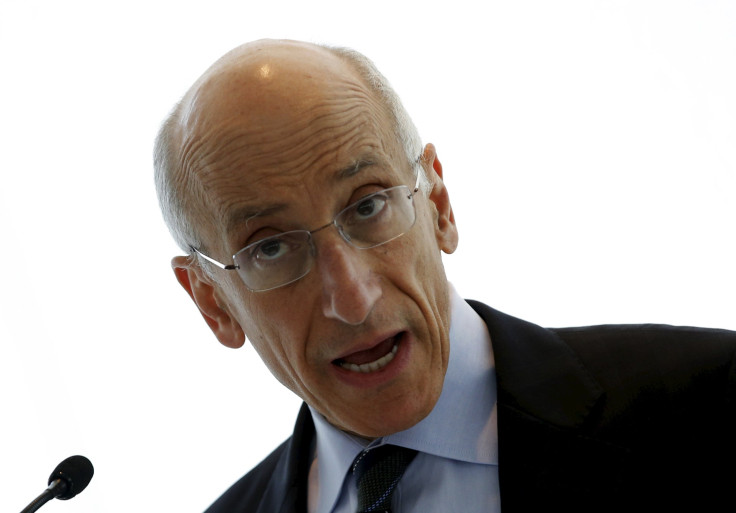US Regulator Floats High-Frequency Trading Rules: 'Flash Boys' Could Face New Round Of Regulations

A top regulator for U.S. markets is floating new rules for high-speed automated traders. In a speech Wednesday, Commodity Futures Trading Commission Chairman Timothy Massad laid out a raft of proposals that he said would reduce the risk that high-frequency trading poses to financial markets.
“In the near term, we are focused on looking at operational risks, and taking steps to minimize the potential for disruptions and other operational problems that may arise,” Massad said, indicating that he expects the agency to release proposals in the next month.
Massad cited financial disruptions that have shaken investors’ confidence in markets. On Oct. 15, 2014, for instance, the market for U.S. Treasury futures took a plunge so dramatic and unlikely that JPMorgan Chase CEO Jamie Dimon called it “an event that is supposed to happen only once in every 3 billion years or so.”
But it wasn’t just the that shock -- or the previous, marketwide “flash crash” of 2010 -- that have spurred regulators to action. In a study of five of the most deeply traded futures markets in the world, the CFTC found that 35 similar flash events had occurred in 2015, a higher rate than in years past.
Though market participants and researchers argue about how much responsibility high-frequency traders bear for such events, regulators have zeroed in on these lightning-fast computer-driven strategies as potential engines of disruption, especially when they malfunction. A Federal Reserve report after the 2014 events put automated trading at the top of the list of potential culprits.
Futures, regulated principally by the CFTC, are financial contracts that allow traders and speculators to hedge on the future prices of commodities and securities. Central to the operation of the financial system, futures markets provide big profits for the self-described market-makers that author Michael Lewis famously dubbed “Flash Boys.”
The proposal outlined Wednesday would create rules that mainly target “malfunctioning algorithms, inadequate testing of algos, errors and similar problems,” Massad said. “We are concerned about the potential for disruptive events and whether there are adequate measures to ensure effective compliance with risk controls and other requirements.”
He also mentioned the possibility of requiring “kill switches” that would shut off algorithms gone haywire, as well as limits to the size of orders traders can place.
Massad emphasized that the CFTC had not yet decided on a set of proposals. Should the agency release proposed rules, they would be subject to a monthslong comment period before possible adoption.
© Copyright IBTimes 2025. All rights reserved.






















